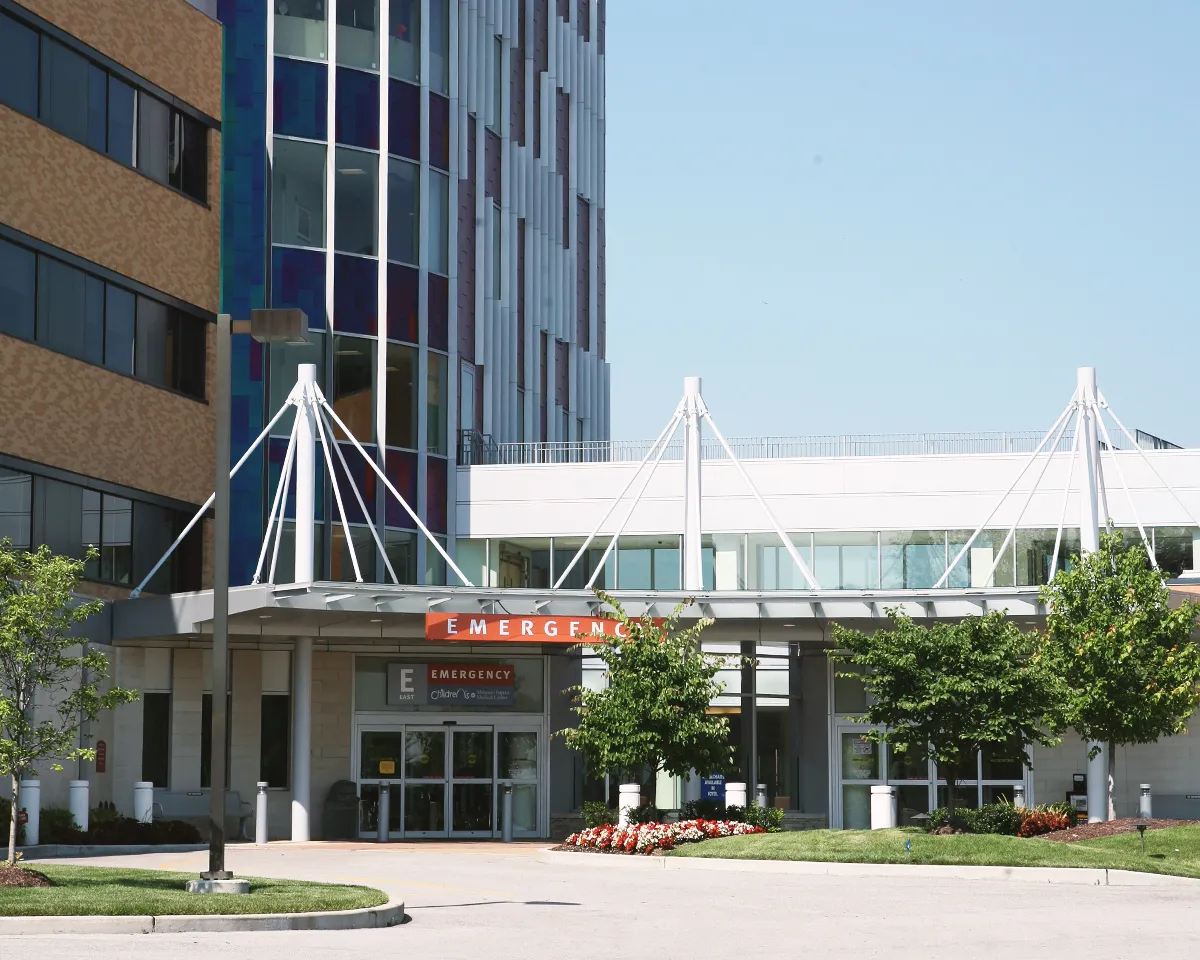Brain Tumors
Finding out you have a brain tumor can be overwhelming. Any growth in the brain has the potential to interfere with basic functions and affect your quality of life. Our team of compassionate experts work together to find an effective brain tumor treatment plan. We create every care plan with one goal in mind: to help you achieve the best possible outcome.
BJC HealthCare works with Washington University physicians, BJC Medical Group, and providers across the region to deliver extraordinary care. Our centers have international reputations for brain tumor treatment. Trust our track record of excellence to help improve your quality of life. From smaller incisions and shorter recovery times to advanced imaging techniques, our brain tumor patients benefit from our deep experience.
We offer:
Recognized expertise: The Siteman Cancer Center is the only National Cancer Institute-designated Comprehensive Cancer Center in Missouri. We rank among the top cancer facilities in the nation with U.S. News & World Report.
Research focus: Our researchers’ efforts lead directly to advancements in brain and spinal tumor treatment. We develop new therapies and offer you access to clinical trials.
Team-based care: Our team of oncologists, neurosurgeons and other experts work together to come up with the most effective care plan for you. You benefit from the expertise of multiple specialists.
Groundbreaking treatments: We were the first in Missouri to offer the Gamma Knife, a highly effective radiation tool that targets brain tumors in patients with gliomas, essential tremors, epilepsy and other neurologic diseases. Our neurosurgeons are also among the first in the country to treat brain tumors with hyperthermia treatment, a new procedure that dramatically reduces trauma and recovery time.
Advanced tools: MRI is a powerful tool that allows neurosurgeons to differentiate between healthy and diseased brain tissue. Our neurosurgeons use intraoperative MRI during surgery so they can more completely remove tumors the first time. We have the most experience with high-field-strength movable intraoperative MRI of any hospital in the United States.
Pituitary tumor treatment: Our Pituitary Tumor Center was the first multispecialty center in the region focused exclusively on diagnosing and treating pituitary tumors. We offer a range of innovative treatments designed to remove tumors safely while sparing surrounding healthy tissue.
Brain tumors are classified as either primary or metastatic. Primary brain tumors originate in the brain and may spread within the central nervous system (brain and spinal cord). They rarely spread to other parts of the body. Metastatic brain tumors originate from a cancer in another organ and spread to the brain.
Types of brain tumors we treat include:
- Diffuse astrocytomaThese tumors grow slowly but can be difficult to remove completely. They often require treatments in addition to surgery, such as chemotherapy or radiation therapy.
- EpendymomaMany ependymomas can be completely removed with surgery. Sometimes patients require other therapies such as chemotherapy or radiation therapy.
- GlioblastomaThese are the most common cancerous primary brain tumors in adults, although they can occur at any age. Glioblastomas can be aggressive and challenging to treat, so clinical trials play an important role.
- MeningiomaThese tumors start in the meninges, the membranes that cover your brain and spinal cord. Meningiomas are the most common noncancerous brain tumor.
- OligodendrogliomaOligodendrogliomas tend to affect young adults. They grow slowly and often respond well to treatment.
- Pilocytic astrocytomaThese often can be completely removed with surgery and don't tend to grow back. These tumors occur more often in children and young adults.
- Pituitary tumorsThese irregular growths form in the pituitary gland, a small gland in the brain that produces hormones.
- Vestibular schwannomaAlso called acoustic neuroma, these noncancerous tumors form on the vestibular nerve, the cranial nerve that runs between your inner ear and your brain.
Sometimes, tumors cause disruptive symptoms such as severe headaches or seizures. Other times, you don’t know you have a tumor until you have imaging scans for another health condition.
When your doctor suspects a possible brain tumor, they’ll use several tools to figure out how big the tumor is, whether it’s cancerous and if you have tumors in other parts of your body. The answers to all of these questions help us create an effective treatment plan.
Your diagnosis may include:
Your brain tumor treatment plan varies depending on several factors, including how much the tumor has spread and how fast it is growing. We use a range of advanced treatment options, including emerging therapies for tumors that historically were inoperable.
Your treatment may include:
 Barnes-Jewish Hospital
Barnes-Jewish Hospital Missouri Baptist Medical Center
Missouri Baptist Medical Center
Schedule your appointment
Call (314) 362-9355 or (800) 392-0936 to schedule your appointment with a specialist.